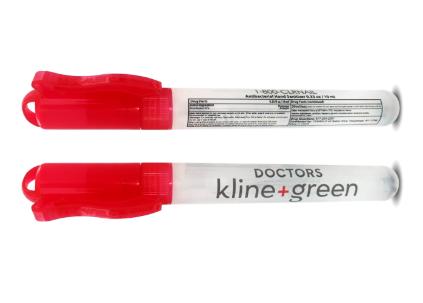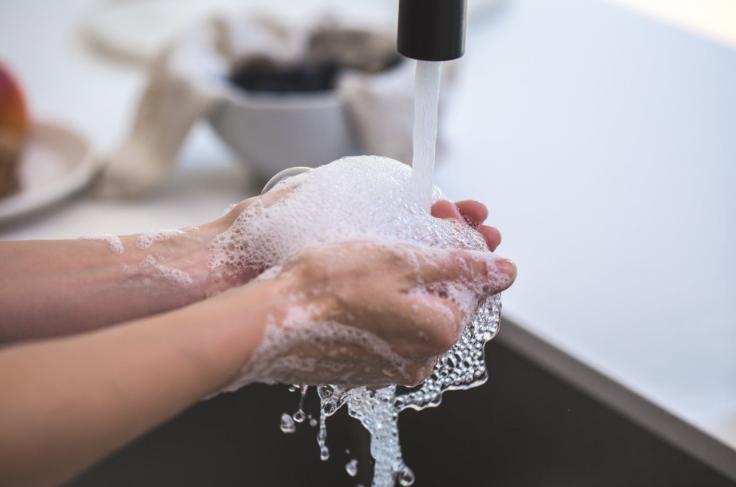How To Prevent Toenail Fungus
No one wants to experience toenail fungus (also called onychomycosis). However, it is relatively...

When it comes to hand sanitizers we know that there are a multitude of benefits to be had from using it such as improved hand hygiene. However, one of the questions that is often asked is whether it can be bad for your skin. As with most things in life, you can get too much of a good thing, and this can be the case with hand sanitizer too, depending on the brand, the ingredients contained within it and how often it is used.
The first thing to note that for most people the use of hand sanitizer outweighs the negative effects that it might have on your hands. The antibacterial properties of hand sanitizers mean that you can reduce the risk of picking up bugs and germs that can make you sick, such as in flu season.
One misconception is that hand sanitizer can replace hand washing as a method of cleaning your hands. This is not the case. It is better to wash your hands using soap and water than relying on just hand sanitizer to do the job for you. If a sink, water and hand sanitizer are available to you, then you should use both methods for increased protection. This is why you may find hand sanitizer dispensers at the exit of bathrooms, to ensure you get the most protection.
However, the misconception that hand sanitizer can replace soap and water can be one of the reasons that this kind of cleanser can be bad for the skin, if it is overused.
There are a couple of reasons why hand sanitizer can be bad for the skin. Firstly, for a hand sanitizer to be effective it should contain ethyl alcohol since this is the ingredient that kills germs. Alcohol on the skin can cause dry skin. Therefore, it is a good idea to use a moisturizing lotion alongside the hand sanitizer if you use it a lot. You might be tempted to pick a non-alcohol based hand sanitizer, but these are a lot less effective than the ones with alcohol within it. If you want to be germ-free on your hands then you should ensure your hand sanitizer has ethyl alcohol on the ingredients list. If a hand sanitizer is alcohol-free then it will require another antibacterial ingredient instead. Many hand sanitizers contain an alternative substance called Triclosan and for some individuals this can be an allergen. In the case of the hand sanitizer that we supply it is alcohol based and does not contain Triclosan.

Hand sanitizer use is best when you do not have access to soap and water. When you are out and about, in the city, on public transport or at the airport where you are having to touch surfaces that have been used by other people then hand sanitizer is a great way to reduce your exposure to germs. Simply squirt a little bit of hand sanitizer on the surfaces of both hands to ensure good coverage and this will help protect you from germs. When you are at home there isn’t a huge requirement to use hand sanitizer since your home is clean and unlikely to be exposed to a range of germs in the same way as when you are out in public. We do not recommend using hand sanitizer all the time in these situations. That way you will reduce the negative aspects of sanitizing your hands whilst maximizing the benefits of its use.